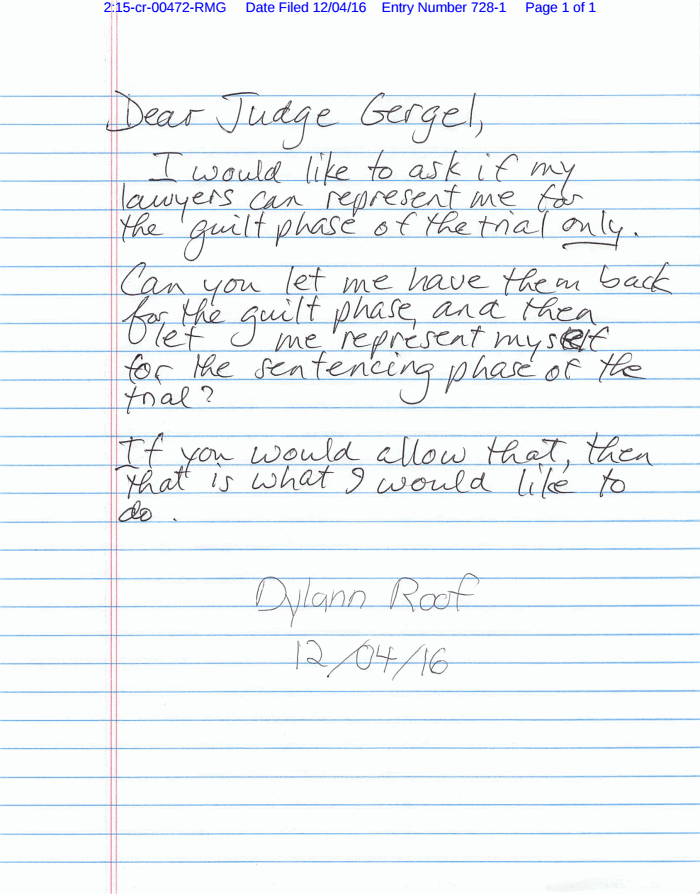
A federal judge on Monday granted a request by Dylann Roof, the white supremacist who allegedly killed nine people at a historic black church in Charleston last year, to allow his defense attorneys to once again represent him at trial — but only through part of the case.
Roof successfully petitioned last week to act as his own lawyer during the death penalty trial in accordance with his rights under the Sixth Amendment. He was then involved in the jury selection process, but was assisted by stand-by counsel.
However, Roof changed his mind on Sunday, filing a motion and handwritten letter asking US District Judge Richard Gergel to let his lawyers return, but only for the phase of the trial in which jurors will decide whether Roof is guilty or innocent.
"I would like to ask if my lawyers can represent me for the guilt phase of the trial only," Roof wrote. "Can you let me have them back for the guilt phase, and then let me represent myself for the sentencing phase of the trial?"
"If you would allow that, then that is what I would like to do," Roof wrote, signing his name.
Judge Gergel had been deeply critical of Roof's original decision to represent himself, telling the defendant it was “strategically unwise" and "foolhardy."
In court on Monday, the judge granted Roof's request, the Associated Press and Post and Courier newspaper reported.
"I find the defendant has made a known and intelligent request," the judge said, according to a reporter in the courtroom, who said Gergel also urged Roof to reconsider representing himself in the sentencing phase.
During the sentencing phase of a death penalty trial, attorneys debate the appropriate punishment, with prosecutors presenting aggravating factors that they say justify imposing a death sentence, while the defendant’s attorneys present mitigating factors, such as mental illness or child abuse, that could lead a jury to decide against a death sentence.
Roof faces 33 charges, including hate crime charges in federal court, for allegedly killing nine black people during a prayer meeting at the Emanuel AME Church on June 17, 2015. If convicted, he could face the death penalty. He also faces capital murder charges in state court and faces a death sentence if convicted.
Prosecutors rejected Roof’s offer to plead guilty to the federal charges and serve life in prison if the government agreed to take the death penalty off the table as a possibility.

